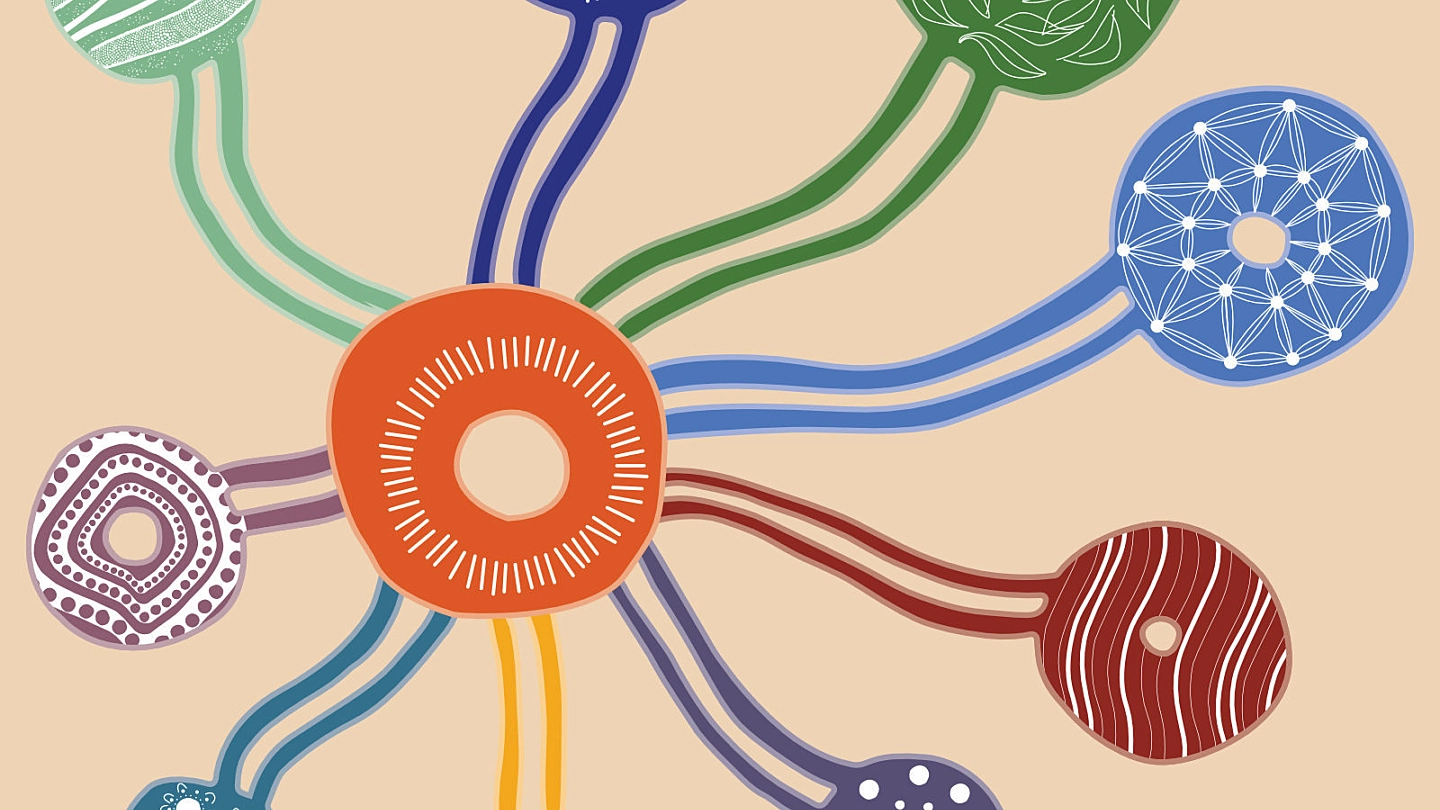The Centre of Research Excellence in Aboriginal Chronic Disease Knowledge Translation and Exchange (CREATE) was established to assist the Aboriginal health sector to collate and use existing knowledge on best practice chronic disease prevention and treatment as well as sustainable primary health care funding and service delivery models to improve the coverage and appropriateness of their services and care.

Chronic diseases make up the bulk of the life expectancy gap between non-Indigenous Australians and Aboriginal and Torres Strait Islander people. Focusing on ways to improve the treatment, management and prevention of chronic diseases in Aboriginal and Torres Strait Islander people has significant potential to reduce this gap.
CREATE has 2 key objectives:
- Collate and synthesise existing evidence and, where necessary, develop and collate new evidence to inform guidelines, policies and/or other tools focused on improving care and outcomes in Aboriginal and Torres Strait Islander people with, or at risk of developing, a chronic disease.
- Enhance the capacity of Aboriginal and Torres Strait Islander health service providers and researchers to conduct translational health research.
Introducing the CREATE Resource
This resource shares the findings of Aboriginal and Torres Strait Islander led research undertaken by CREATE and guided by a national Leadership Group from the Aboriginal Community Controlled Health Organisation (ACCHO) sector. The resource showcases ACCHO ways of working and has been developed for workforce within ACCHOs and other Indigenous primary health care organisations.
For many ACCHOs, the information within the resource will be common knowledge and represent long standing practices. It is important to reflect on the unique characteristics of your ACCHO and community before considering whether some of the recommendations included in this resource could be adopted to benefit local Aboriginal and Torres Strait Islander peoples.
The resource may be used to support evaluation of existing programs and service delivery models, induction of new staff, workforce capacity building, strategic planning processes, funding applications or future research endeavours.
The resource contains ten chapters that each describe ACCHO practices in one domain. Each chapter has a summary and list of contents on the first page, then goes on to provide a detailed description of ACCHO ways of working, outcomes, enablers, challenges and recommendations. There is also a brief discussion that describes other relevant research, and a reflection tool that summarises key approaches outlined within the chapter. Policy briefs have also been developed to summarise the challenges and policy implications related to each chapter of the resource, with the exception of Chapter 2 (Governance chapter). The chapters and policy briefs can be accessed through the links below.
The resource is an interactive PDF. You can simply click on the Table of Contents to navigate to the chapters, and click on links to take you to other websites and content.
Resource chapters
The content within this chapter was drawn from an international systematic scoping review that was refined for the ACCHO context by the CREATE Leadership Group and strengthened with learnings from multiple CREATE case studies.
The content within this chapter was drawn from a rapid review of the literature and meta-synthesis of ACCHO case studies. This was refined through consultation with a newly established ACCHO and collective input from the CREATE Leadership Group to include perspectives from the ACCHO sector nationwide.
The content within this chapter was drawn from two in-depth case studies including with a large remote ACCHO and a small regional ACCHO. The content was refined by collective input from the CREATE Leadership Group to include perspectives from the ACCHO sector nationwide.
The content within this chapter was drawn from an in-depth case study with a Regional ACCHO that was reviewed and refined by the CREATE Leadership Group and strengthened with learnings and perspectives from the ACCHO sector nationwide.
The content within this chapter was drawn from an in-depth case study with a Regional ACCHO that was reviewed and refined by the CREATE Leadership Group and strengthened with learnings and perspectives from the ACCHO sector nationwide.
The content within this chapter was drawn from two in-depth case studies including with a metropolitan ACCHO and a metropolitan Aboriginal community controlled aged care service, and was refined by collective input from the CREATE Leadership Group to include perspectives from the ACCHO sector nationwide.
The content within this chapter was drawn from an in-depth case study with a regional newly established ACCHO that was reviewed and refined by the CREATE Leadership Group and strengthened with learnings and perspectives from the ACCHO sector nationwide.
The content within this chapter was based upon an in-depth case study with a metro ACCHO, further refined with input from the CREATE Leadership Group, and strengthened with additional learnings from other ACCHO case studies.
The content within this chapter was based upon an in-depth case study with a regional ACCHO, further refined with input from the CREATE Leadership Group, and strengthened with additional learnings from other ACCHO case studies.
The content of this chapter was drawn from the PhD project Understanding the impact of the national key performance indicators on Aboriginal Community Controlled Health Organisations undertaken by Summer May Finlay through CREATE.
CREATE Quality Appraisal Tool
CREATE established a Methods Group that developed a Quality Appraisal Tool to enable researchers to assess the quality of studies not only through a scientific lens but also through an Aboriginal and Torres Strait Islander cultural lens. The Quality Appraisal Tool was published in 2020. The published paper can be found at:
- Harfield, S., Pearson, O., Morey, K., Kite, E., Canuto, K., Glover, K., Streak-Gomersall, J., Carter, D., Davy, C., Aromataris, E., & Braunack-Mayer, A. (2020). Assessing the quality of health research from an Indigenous perspective: the Aboriginal and Torres Strait Islander quality appraisal tool. BMC Medical Research Methodology 20, 79 (2020). https://doi.org/10.1186/s12874...
The Centre was a collaborative enterprise between
National Aboriginal Community Controlled Health Organisation (NACCHO)
Wardliparingga Aboriginal Research Unit, South Australian Health and Medical Research Institute (SAHMRI)
University of Adelaide – School of Public Health and Joanna Briggs Institute (University of Adelaide)

